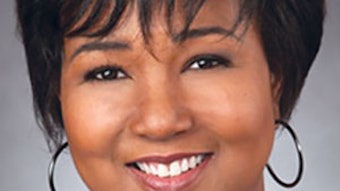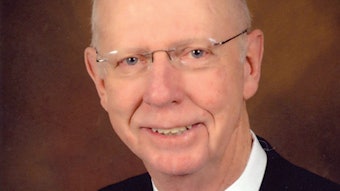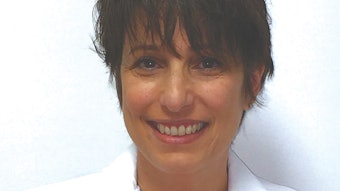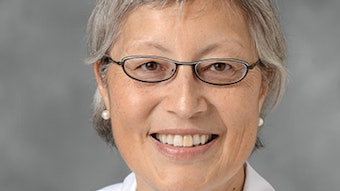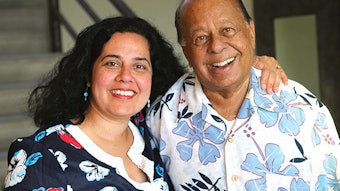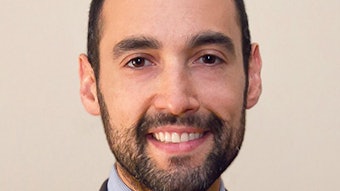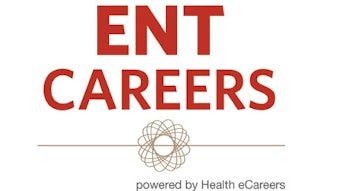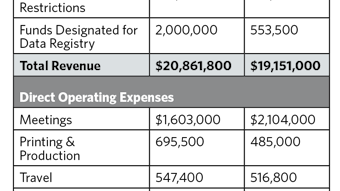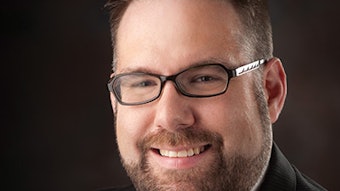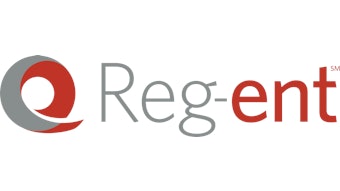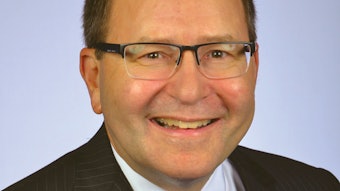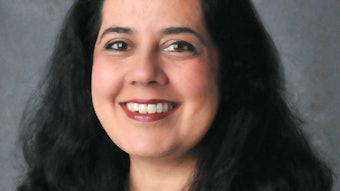PRACTICE PROFILE Polaris Medical Group-ENT
Polaris Medical Group-ENT, LLC, in Atlanta, GA, is owned by Academy Member Lisa C. Perry-Gilkes, MD. As a solo private practitioner, Dr. Perry-Gilkes (above, third from left) employs four full-time staff members and one part-time.
Solo practice thrives despite challenges
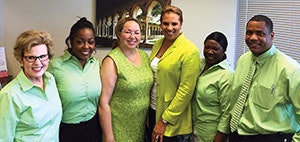 Lisa C. Perry-Gilkes, MD, third from left, heads the Polaris Medical Group-ENT, LLC.
Lisa C. Perry-Gilkes, MD, third from left, heads the Polaris Medical Group-ENT, LLC.Polaris Medical Group-ENT, LLC, in Atlanta, GA, is owned by Academy Member Lisa C. Perry-Gilkes, MD. As a solo private practitioner, Dr. Perry-Gilkes (above, third from left) employs four full-time staff members and one part-time.
“I saw three kids with nosebleeds yesterday, and then three older people with tinnitus. I am a general ENT. I treat neonates to my oldest patient who is 103—whatever walks through the door,” Dr. Perry-Gilkes says cheerfully.
Her positivity radiated through the phone in an interview with Bulletin staff.
“I like being a specialty of small dark holes. I like the technical part—the amazing changes you can make in someone’s health and life through little tiny holes, no huge incisions. I like that we still have nonsurgical parts of our practices, and I love seeing a wide range of patients. Maybe it’s because I just like people,” she chuckles, “I’m kind of chatty myself. I think of my office as my house. I welcome you—the patient—into my home. I want you to be comfortable. You’re an invited guest. I want you to have a good time, and the ultimate goal is for me to make you feel better.”
Dr. Perry-Gilkes grew up in the Midwest, and says she sometimes feels like she is in a Tennessee Williams play or Truman Capote novel living in the South. She insists, “Some of my patients are absolutely, positively wonderful. One patient can make you forget all about the trials and tribulations—one grateful patient can just make your whole day or even your whole week.”
What are some of the challenges she faces as a private practitioner?
“Oh baby, I could write you a book!” Dr. Perry-Gilkes said. “The investment, of course. The cost of doing business. My lease is ridiculous. And finding competent employees is a challenge.” One of her best employees was in her 60s, but recently resigned. Another top employee that she tells us about is in her 70s. “She is amazing. Do you remember “The Golden Girls”? I have Blanche Devereaux in my office, in charge of collections. She used to be a patient of mine and she could make me do just about anything, so one day I thought to myself, how about getting her to call these people? She’s as sweet as pie, but she can get blood from a stone.”
With her office located 10 minutes from the Hartsfield-Jackson Atlanta International Airport, Dr. Perry-Gilkes doesn’t peak marketplace. She is in a middleclass neighborhood and has a significant amount of Medicare and Medicaid patients. “One thing that annoys me is RVUs [relative value units] and how you can do the exact same procedure but depending on where your office is, you get paid differently. To me that doesn’t seem fair,” Dr. Perry-Gilkes says. “I know a lot of people complain about electronic health records [EHR] but it’s all part of doing business now. You can complain as much as you want, but do you want to work? Then get with the program! As much energy as people put into complaining, if they put that into getting their EHRs together, they’d be halfway there,” she quips.
“There are always frustrations, but no one told me to be a doctor. These are my choices. I think it was Abraham Lincoln who said most people are as happy as they choose to be?” she pauses before finishing, “I choose to be happy. Pain in life is necessary, but suffering is your choice.”
Dr. Perry-Gilkes also made it clear that she loves her Academy. “It’s not perfect, but what is perfect? We’re all like-minded people working toward the same things: the betterment of our patients, the better care of our specialty, helping our Members to optimize their work academically, medically, as well as financially.”
She didn’t always feel that way though. “For a long time, I didn’t appreciate all that the Academy did. I’m a real supporter of organized medicine, ever since medical school when I joined the SNMA [Student National Medical Association]. When I initially started as a young physician in California, I got involved with my county and state medical societies—I’m still active in all of those—but what I realized was that you need to belong to both local and national organizations. You need to have a voice. Those organizations are parallel, not exclusive. You need both. Yes, it’s an investment but the dues pay for themselves if you take advantage of what the Academy offers. For example with PQRS [Physician Quality Reporting System], they either earned you $2,000 or saved you a huge fine. That pays for your dues right there.”
She urges young physicians and students to find out everything that is available to them through the Academy. “I think people just don’t realize all that the Academy does for them. The meetings are especially useful,” she continues, “It’s fellowship. Heck, all the meetings are fun and you get to see people from all over the country that you haven’t talked to in how long? I look forward to it.”
Dr. Perry-Gilkes is particularly invested in the Academy’s mission and vision. “The saying is that where there is no vision, the people perish. We know where we’re going, and it takes courage and organization to move forward.” As for her personally, “I’m not going to lie down. I’m not going to quit. I may retire someday but even when I do, I’ll still do something,” she says. “To those who much is given, much is expected. That’s why I’m active, that’s why I care about giving back to my community, and that’s why I’m going to keep going.”
Local, national collaboration benefits Members
Dr. Perry-Gilkes appropriately highlights the essential nature of collaboration among all levels of organized medicine. Optimal results are most likely obtained when organizations synergize their resources and take advantage of their respective areas of expertise and influence to solve complex problems. The Academy participates in a number of coalitions both national and local that deal with legislative and regulatory issues, public health initiatives, patient care issues, and humanitarian opportunities.
The Academy works closely with national organizations such as the American College of Surgeons, the American Medical Association, national specialty societies within otolaryngology, and consumer advocacy groups, as well as state and local medical societies to represent the interests of our Members and their patients.
A key ingredient to the success of this system is the knowledge that there is some matter that is affecting our Members’ ability to practice the type of medicine that benefits their patients most. The Board of Governors, particularly those participating in PROJECT 535 and the AAO-HNS State Tracker programs, is an essential pipeline of information that alerts us when action is needed. The earlier that the Academy knows of a problem, the more likely we will be able to intervene in a meaningful fashion.
Some recent examples of collaborative efforts include successful modification of the policy regarding providers of allergy service for Texas Medicaid patients, advocacy on the USP 797 proposal that would alter the way immunotherapy vials are prepared, and recent comments on a Federation of State Medical Boards (FSMB) resolution that would affect compounding of medicines in physician offices.
Activities such as these are critical for the day-to-day practice of medicine for our Members and will continue to be emphasized in the future.





